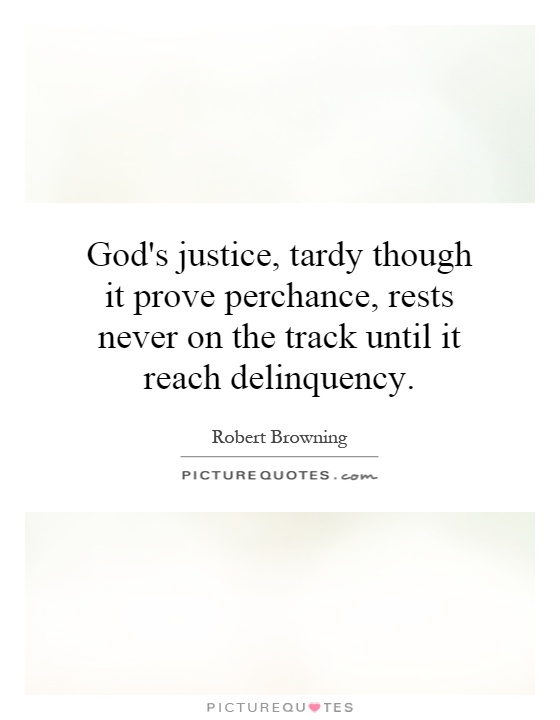God's justice, tardy though it prove perchance, rests never on the track until it reach delinquency

God's justice, tardy though it prove perchance, rests never on the track until it reach delinquency
Robert Browning, a renowned Victorian poet, often explored themes of morality, justice, and the complexities of human nature in his works. One of his most famous quotes, “God's justice, tardy though it prove perchance, rests never on the track until it reach delinquency,” encapsulates his belief in divine justice and the inevitability of punishment for wrongdoing.In this quote, Browning suggests that although God's justice may seem slow in coming, it will eventually catch up with those who have committed acts of delinquency or wrongdoing. This idea of divine retribution is a common theme in Browning's poetry, as he often grappled with questions of morality and the consequences of one's actions.
Browning's belief in the ultimate fairness of God's justice is reflected in many of his works, such as his dramatic monologues like "My Last Duchess" and "Porphyria's Lover." In these poems, Browning explores the darker aspects of human nature and the consequences of jealousy, obsession, and violence. Through his characters, Browning delves into the complexities of moral responsibility and the ways in which individuals justify their actions.












 Friendship Quotes
Friendship Quotes Love Quotes
Love Quotes Life Quotes
Life Quotes Funny Quotes
Funny Quotes Motivational Quotes
Motivational Quotes Inspirational Quotes
Inspirational Quotes